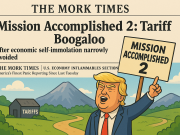In today’s tech landscape, ‘diversity,’ ‘equity,’ and ‘inclusion’ are terms that have been championed with increasing fervor. Yet, despite the spotlight, the tech industry is discovering that mere acknowledgment is not enough; it requires a commitment to tangible, continual growth and change. At The Work Times, we’ve decided to delve deep into what DEI truly means for the tech sector, particularly within the progressive arenas of New York’s thriving tech hubs.
The state of diversity in tech is often documented in yearly reports that reveal a stubborn homogeneity in many leading firms. Statistics shed light on demographics, but they do not tell us the entire story. It’s not just about the headcounts of underrepresented groups but also about the quality of inclusion and the structural equality within companies. New York-based tech giants have the potential to be the trendsetters in this realm, establishing an industry-wide blueprint for success. Yet, are these companies merely riding the wave of DEI trends, or are they indeed reshaping their corporate DNA?
Our examination of DEI initiatives is holistic. We look at hiring practices, retention rates, promotion pathways, and the inclusivity of company culture. We probe the effectiveness of training programs, mentorship opportunities, and the strategic objectives that are set to measure progress. Through interviews with industry leaders, diversity officers, and employees at various levels, we strive to present a comprehensive picture of DEI in action.
What surfaces from our exploration are narratives of both triumph and stagnation. There are tech firms leading by example, with innovative approaches that empower underrepresented individuals and foster an environment where everyone has an equitable chance to succeed. Conversely, there are also tales of superficial measures, where the glamour of diversity is paraded without addressing the systemic issues that perpetuate inequality.
The Work Times recognizes that accountability is key. We investigate how companies follow through on their promises, looking at the mechanisms in place to ensure that DEI objectives are not just a set of targets but integral parts of business operations. We explore the pressure points: shareholder expectations, customer demands, and the role of public perception. Furthermore, we question what’s next for tech companies that want to do more than just pay lip service to DEI concepts.
In our ongoing series, we will share successful strategies that have proven beneficial in creating a diverse and inclusive tech environment. We will highlight practical steps for companies that aspire to build a truly representative workforce, and we will discuss how continuous evolution and dedication to these principles can lead to groundbreaking progress.
By offering insights, analysis, and a platform for discussion, The Work Times seeks to contribute to a more equitable tech industry. We invite our readers to join us in this conversation, to challenge the status quo, and to envision a workplace where diversity, equity, and inclusion are part of the very fabric of organizational success.
Stay tuned as we explore the real state of DEI in tech, and where it needs to go from here. Our mission is to ensure that diversity is not just a buzzword, but a stepping stone to a more inclusive and innovative future for all in tech.




























